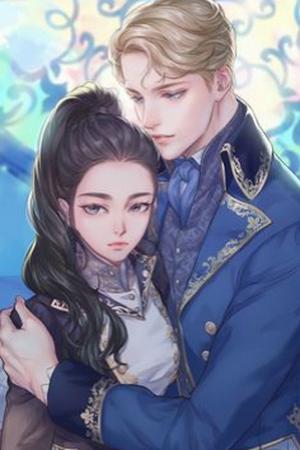Novel Name : Black Iron's Glory
Black Iron's Glory Chapter 48 - Buying Bullets and Gunpowder
Chapter 48Buying Bullets and Gunpowder
When Claude and Borkal said that they wanted to buy bullets and gunpowder for the aubass mark 2 matchlock, Wakri whistled. That was something he did quite rarely. “Your fathers really spoil you two too much. They were actually willing to buy the newest standard issue gun of the kingdom’s army for you. The aubass mark 2 matchlock is one of the most advanced guns on the continent, being able to hit targets 380 meters away and having an effective killing range of 240 meters. I heard it’s even able to kill huge wild boars weighing some 400 catties with a single shot within 150 meters.”
Wakri appeared to be quite the gun enthusiast as well. He knew the properties of the gun like the back of his hand.
“Uncle Wakri, did the firing range and effective killing range of this new model improve upon the old ones?” Claude felt that the advance of this world’s gun technology had started moving in the wrong direction. What’s the point of increasing the firing range without changing the firing mechanism?! It’s no wonder they’re still stuck at matchlocks even though they’ve been introduced more than six centuries earlier!
“Of course. The earliest guns only had a firing range of around 200 meters with an effective killing range of 80. The increase from that to 380 meters throughout the past five centuries is already the limit. You should know that the aubass mark 1 could only shoot 360 meters away. To increase its firing range by another 20 meters, the national firearms institute spent more than ten years and countless funds to research it,” said Wakri emotionally.
Claude felt that he was talking to a wall. “No, Uncle Wakri, what I don’t understand is why the firing range of a gun needs to be improved upon. To be honest, these guns fire really slowly and aren’t that accurate, so what would the point in shooting far be? Also, it’s not like the shooter can take aim well at an enemy that’s more than 300 meters away. Who knows where the bullets will hit? Wouldn’t it better to shoot faster at a closer range instead?”
Wakri looked at Claude and laughed. “Kid, the moment I hear you speak, I know that you’re someone who doesn’t know much about guns. Firing range is king when we’re talking about matchlocks. You’ll understand when you go on the battlefield. A firing of 380 meters will allow you to shoot the advancing enemy five or six times before you enter their firing range. Whether you can hit them accurately isn’t important. It’s really common for one matchlock to miss its target, but what if a thousand matchlocks fired at the same time? Would the targets stand any chance of escape?
“What the battlefield requires is barrage fire like this. They count on taking the first shot to destroy the enemy’s firing line. If one side is armed with a gun that can fire up to 380 meters away and the other can only shoot 280 meters away, the side that can shoot further can unload multiple volleys of fire to the helpless enemy, who won’t be able to retaliate at all. Know that being hit by one volley is enough to cripple a unit.”
Even though Wakri’s explanation was sensible, Claude still found some fault in it. “Then why would the side with a shorter firing range be so foolish as to remain in one place? Can’t they scatter and approach the enemy before regrouping when they make up for their shorter firing range? That would even give them a chance to win.”
“And that’s why I said that you don’t really know much about this,” Wakri said with the shake of his head, “Don’t you know that matchlocks are only good when they’re fired in volleys? Only when the unit lines up properly and fires in unison after hearing the order will the volley be destructive enough and cause the enemy damage. While scattering on the battlefield isn’t difficult, regrouping and forming a firing line would be exceedingly difficult. The enemy won’t give you that kind of time to pull that maneuver off.
“One matchlock alone isn’t enough to pose much of a threat to the enemy on the battlefield. This fact was proven many times on the battlefield by the cavalry gunners. They would group together in groups of three to five and ride around the battlefield to in search of opportunities to kill enemy scouts or messengers. But later, they realized that the best they could do was manage three to four hits out of every ten because their enemies were moving targets instead of still ones like those in the shooting ranges…”
Claude couldn’t be bothered to talk with Wakri any longer; he would have better luck trying to reason with a plant. It was then when he understood something. It’s no wonder the nations on Freia put so many limitations on peasants. It’s so that they can easily be conscripted into the army and used as cannon fodder on the battlefield. Didn’t Father say that even if Aueras defeats the five allied nations, it would also suffer heavy losses? This is an era where soldiers are no different from death row prisoners marching onto the battlefield to be killed by one another…
In the history of Claude’s world, during the time of matchlocks and flintlocks, the armies of the time would use the volley fire tactic –taking turns to fire and reload– while they approached the enemy unit. Both sides would arrange their troops in tight ranks as they made their approach before firing and rotating out the troops in the back. It was a contest of bravery and ability to sustain casualties until either unit broke down and retreated or surrendered.
Claude remembered watching a film through the internet about such wars. In the world of the film, the red-fir army’s soldiers marched towards their enemies under a marching tune, all of them dressed completely in red. Even though they had entered firing range, their commanding officer didn’t give the order to fire, so the unit continued their advance step by step. From time to time, their comrades would fall and those behind would step forward to fill in their ranks.
Even though the unit suffered great casualties, the fearless soldiers’ approach put huge pressure on the enemy troops and caused the enemy to fail to prepare for their last two volleys well, which only caused minor casualties in the end. By then, the red-fir army was already less than thirty meters away from the enemy and the commanding officer finally gave the order to fire. That volley alone took out nearly all the enemy soldiers at the front. After that, a horn signal was blown and the soldiers who made their shot didn’t bother to reload and instead took out their knives and fitted them on their guns to be used as bayonets and mounted the final charge that led them to victory.
Claude had also read a newspaper article about a conflict at the border of the kingdom that resulted in nearly one thousand casualties. Back then, he didn’t quite understand why the number was so high. But now, he did There were no trenches or battlements nor were there artillery blockades. The soldiers on both sides merely marched to their deaths and for every ten thousand enemies eliminated, three thousand of their own were lost. Even if the kingdom were to win the war with those odds, it might not necessarily be able to bear such losses.
Just yesterday night, his father had said that even if the kingdom didn’t suffer a similarly crippling loss in the conflict with the five nations in the anti-Aueras alliance, peace negotiations would hardly pop up. It was only when the nations were unable to sustain those losses that there would be peace. It was no wonder his father had said that about three decades of peace would follow right after the war, given the staggering rate at which youths were sent to get in lines for their deaths. But when the next generation was raised, the fragile peace they had would be shattered and the youths would once again be sent to war.
Claude felt someone tug on his sleeve. He snapped out of his thoughts and saw that it was Borkal.
“What are you spacing out for? Have you decided how much you want to buy?”
“Oh, sorry. I was thinking about something just now.” Claude turned to Wakri and said, “What’s the price for bullets and gunpowder suitable for the aubass mark 2 like?”
“The bullets themselves are cheap as they use a standard type. Each cost two black pennies,” Wakri said as he flipped his account book, “But there are three types of gunpowder you can choose from. The aubass mark 2 is compatible with all three types of commonly used gunpowder on the market. The one with the shortest firing range and is the standard type 1 gunpowder. The standard type 2 gunpowder can allow you to shoot up to 300 meters while the pellet-type type 3 can help you achieve maximum firing range. Which do you need?”
Claude was surprised. They even have gunpowder in pellet form?
“How much do they cost?” asked Borkal.
“Type 1 is the cheapest, but it can only fire as far as 200 meters with an effective killing range of 120 meters or so. That’s what you guys bought the last time and one unit cost one sunar. Type 2 is two times the price of type 1, two sunars for each unit. Type 3 costs the most at five sunars per unit. However, it will allow you to shoot up to 380 meters.”
Apparently, one unit referred to the amount needed for ten shots of the gun.
“Then I want the pellet one–” Borkal had wanted to spend a load of cash for the most expensive variant.
But Claude quickly held his mouth shut. Are you joking? It’ll cost you five sunars for ten shots, and one riyas for twenty! One thale would only get you around 200 shots! Father said that I must use my own money to pay for the gunpowder and bullets. If I spend the few thales I have left on type 3 pellet gunpowder, I won’t be able to last a month! Wero said that the minimum number of shots required to get a good feel for the gun is 30 a day!
“Uncle Wakri, I’ll just buy the type 1 for now, ten units of them,” Claude said before he let go of Borkal, “These are new guns and we are only beginners. We’re only buying bullets and gunpowder for practice. Like Wero said, we must familiarize ourselves with them first. So, there’s no need to get the best gunpowder for that, because shooting 380 meters or 200 won’t matter much. Getting to know how the gun handles is the crucial part.”
Wakri nodded with a smile and said, “Claude’s right. There’s really no need for you to buy such expensive gunpowder for practice. It’s not like you’ll hit anything at first anyway. Just get used to all the steps you need to do to shoot first. Only after you get a feel for it should you buy some type 3 gunpowder when you go hunt to defend against huge wild beasts just in case.”
Borkal gave it some thought and agreed. “Alright, I’ll also get ten units of type 1 gunpowder. Get me enough bullets for the gunpowder as well.”
Gunpowder of firearms of that era were packed loosely. Wakri went to his storeroom and brought out a small wooden barrel with the words ‘type 1 gunpowder’ on them. He then took a scale out and put it on the counter before using a wooden spoon to scoop the gunpowder onto the bronze plate on the scale.
The units of weight in that world was rather similar to those used in Claude’s previous life. It was a weird mixture of eastern and western units. The most common unit of weight was the catty, which was equivalent to half a kilogram. Beneath the catty was the tael, which weighed around a tenth of a catty. But what came after the catty wasn’t the mace, but rather the gram. One catty was equivalent to ten taels, and one tael was equivalent to ten grams. The unit above the catty was the decacatty, a hectocatty, but no kilocatty. Instead it was simply known as tonne. The weight of a ship’s cargo was normally measured in tonnes.
Gunpowder enough for ten shots was also called one unit. Each soldier would have to be supplied with three units before every battle, which meant that they could fire 30 shots with the gunpowder they had. However, the number of troops that actually managed to fire that number of shots was extremely low. Most soldiers died on the battlefield without being able to fire a single shot.
Each shot with type 1 gunpowder required around one tael and one gram of it, so a unit of type 1 gunpowder weighed one catty, one tael and seven to eight grams. After Wakri measured the gunpowder, he poured it on an oiled paper and wrapped it inside a small linen pouch. Ten units of type 1 gunpowder came in ten separate oiled papers which were put into the linen pouch alongside the 100 lead bullets.
Claude paid a riyas and two sunars and left the linen pouch on the table before he decided to head to the wooden racks to take a look around to see whether he could find more magical items like the cookbook from before.
When Claude and Borkal said that they wanted to buy bullets and gunpowder for the aubass mark 2 matchlock, Wakri whistled. That was something he did quite rarely. “Your fathers really spoil you two too much. They were actually willing to buy the newest standard issue gun of the kingdom’s army for you. The aubass mark 2 matchlock is one of the most advanced guns on the continent, being able to hit targets 380 meters away and having an effective killing range of 240 meters. I heard it’s even able to kill huge wild boars weighing some 400 catties with a single shot within 150 meters.”
Wakri appeared to be quite the gun enthusiast as well. He knew the properties of the gun like the back of his hand.
“Uncle Wakri, did the firing range and effective killing range of this new model improve upon the old ones?” Claude felt that the advance of this world’s gun technology had started moving in the wrong direction. What’s the point of increasing the firing range without changing the firing mechanism?! It’s no wonder they’re still stuck at matchlocks even though they’ve been introduced more than six centuries earlier!
“Of course. The earliest guns only had a firing range of around 200 meters with an effective killing range of 80. The increase from that to 380 meters throughout the past five centuries is already the limit. You should know that the aubass mark 1 could only shoot 360 meters away. To increase its firing range by another 20 meters, the national firearms institute spent more than ten years and countless funds to research it,” said Wakri emotionally.
Claude felt that he was talking to a wall. “No, Uncle Wakri, what I don’t understand is why the firing range of a gun needs to be improved upon. To be honest, these guns fire really slowly and aren’t that accurate, so what would the point in shooting far be? Also, it’s not like the shooter can take aim well at an enemy that’s more than 300 meters away. Who knows where the bullets will hit? Wouldn’t it better to shoot faster at a closer range instead?”
Wakri looked at Claude and laughed. “Kid, the moment I hear you speak, I know that you’re someone who doesn’t know much about guns. Firing range is king when we’re talking about matchlocks. You’ll understand when you go on the battlefield. A firing of 380 meters will allow you to shoot the advancing enemy five or six times before you enter their firing range. Whether you can hit them accurately isn’t important. It’s really common for one matchlock to miss its target, but what if a thousand matchlocks fired at the same time? Would the targets stand any chance of escape?
“What the battlefield requires is barrage fire like this. They count on taking the first shot to destroy the enemy’s firing line. If one side is armed with a gun that can fire up to 380 meters away and the other can only shoot 280 meters away, the side that can shoot further can unload multiple volleys of fire to the helpless enemy, who won’t be able to retaliate at all. Know that being hit by one volley is enough to cripple a unit.”
Even though Wakri’s explanation was sensible, Claude still found some fault in it. “Then why would the side with a shorter firing range be so foolish as to remain in one place? Can’t they scatter and approach the enemy before regrouping when they make up for their shorter firing range? That would even give them a chance to win.”
“And that’s why I said that you don’t really know much about this,” Wakri said with the shake of his head, “Don’t you know that matchlocks are only good when they’re fired in volleys? Only when the unit lines up properly and fires in unison after hearing the order will the volley be destructive enough and cause the enemy damage. While scattering on the battlefield isn’t difficult, regrouping and forming a firing line would be exceedingly difficult. The enemy won’t give you that kind of time to pull that maneuver off.
“One matchlock alone isn’t enough to pose much of a threat to the enemy on the battlefield. This fact was proven many times on the battlefield by the cavalry gunners. They would group together in groups of three to five and ride around the battlefield to in search of opportunities to kill enemy scouts or messengers. But later, they realized that the best they could do was manage three to four hits out of every ten because their enemies were moving targets instead of still ones like those in the shooting ranges…”
Claude couldn’t be bothered to talk with Wakri any longer; he would have better luck trying to reason with a plant. It was then when he understood something. It’s no wonder the nations on Freia put so many limitations on peasants. It’s so that they can easily be conscripted into the army and used as cannon fodder on the battlefield. Didn’t Father say that even if Aueras defeats the five allied nations, it would also suffer heavy losses? This is an era where soldiers are no different from death row prisoners marching onto the battlefield to be killed by one another…
In the history of Claude’s world, during the time of matchlocks and flintlocks, the armies of the time would use the volley fire tactic –taking turns to fire and reload– while they approached the enemy unit. Both sides would arrange their troops in tight ranks as they made their approach before firing and rotating out the troops in the back. It was a contest of bravery and ability to sustain casualties until either unit broke down and retreated or surrendered.
Claude remembered watching a film through the internet about such wars. In the world of the film, the red-fir army’s soldiers marched towards their enemies under a marching tune, all of them dressed completely in red. Even though they had entered firing range, their commanding officer didn’t give the order to fire, so the unit continued their advance step by step. From time to time, their comrades would fall and those behind would step forward to fill in their ranks.
Even though the unit suffered great casualties, the fearless soldiers’ approach put huge pressure on the enemy troops and caused the enemy to fail to prepare for their last two volleys well, which only caused minor casualties in the end. By then, the red-fir army was already less than thirty meters away from the enemy and the commanding officer finally gave the order to fire. That volley alone took out nearly all the enemy soldiers at the front. After that, a horn signal was blown and the soldiers who made their shot didn’t bother to reload and instead took out their knives and fitted them on their guns to be used as bayonets and mounted the final charge that led them to victory.
Claude had also read a newspaper article about a conflict at the border of the kingdom that resulted in nearly one thousand casualties. Back then, he didn’t quite understand why the number was so high. But now, he did There were no trenches or battlements nor were there artillery blockades. The soldiers on both sides merely marched to their deaths and for every ten thousand enemies eliminated, three thousand of their own were lost. Even if the kingdom were to win the war with those odds, it might not necessarily be able to bear such losses.
Just yesterday night, his father had said that even if the kingdom didn’t suffer a similarly crippling loss in the conflict with the five nations in the anti-Aueras alliance, peace negotiations would hardly pop up. It was only when the nations were unable to sustain those losses that there would be peace. It was no wonder his father had said that about three decades of peace would follow right after the war, given the staggering rate at which youths were sent to get in lines for their deaths. But when the next generation was raised, the fragile peace they had would be shattered and the youths would once again be sent to war.
Claude felt someone tug on his sleeve. He snapped out of his thoughts and saw that it was Borkal.
“What are you spacing out for? Have you decided how much you want to buy?”
“Oh, sorry. I was thinking about something just now.” Claude turned to Wakri and said, “What’s the price for bullets and gunpowder suitable for the aubass mark 2 like?”
“The bullets themselves are cheap as they use a standard type. Each cost two black pennies,” Wakri said as he flipped his account book, “But there are three types of gunpowder you can choose from. The aubass mark 2 is compatible with all three types of commonly used gunpowder on the market. The one with the shortest firing range and is the standard type 1 gunpowder. The standard type 2 gunpowder can allow you to shoot up to 300 meters while the pellet-type type 3 can help you achieve maximum firing range. Which do you need?”
Claude was surprised. They even have gunpowder in pellet form?
“How much do they cost?” asked Borkal.
“Type 1 is the cheapest, but it can only fire as far as 200 meters with an effective killing range of 120 meters or so. That’s what you guys bought the last time and one unit cost one sunar. Type 2 is two times the price of type 1, two sunars for each unit. Type 3 costs the most at five sunars per unit. However, it will allow you to shoot up to 380 meters.”
Apparently, one unit referred to the amount needed for ten shots of the gun.
“Then I want the pellet one–” Borkal had wanted to spend a load of cash for the most expensive variant.
But Claude quickly held his mouth shut. Are you joking? It’ll cost you five sunars for ten shots, and one riyas for twenty! One thale would only get you around 200 shots! Father said that I must use my own money to pay for the gunpowder and bullets. If I spend the few thales I have left on type 3 pellet gunpowder, I won’t be able to last a month! Wero said that the minimum number of shots required to get a good feel for the gun is 30 a day!
“Uncle Wakri, I’ll just buy the type 1 for now, ten units of them,” Claude said before he let go of Borkal, “These are new guns and we are only beginners. We’re only buying bullets and gunpowder for practice. Like Wero said, we must familiarize ourselves with them first. So, there’s no need to get the best gunpowder for that, because shooting 380 meters or 200 won’t matter much. Getting to know how the gun handles is the crucial part.”
Wakri nodded with a smile and said, “Claude’s right. There’s really no need for you to buy such expensive gunpowder for practice. It’s not like you’ll hit anything at first anyway. Just get used to all the steps you need to do to shoot first. Only after you get a feel for it should you buy some type 3 gunpowder when you go hunt to defend against huge wild beasts just in case.”
Borkal gave it some thought and agreed. “Alright, I’ll also get ten units of type 1 gunpowder. Get me enough bullets for the gunpowder as well.”
Gunpowder of firearms of that era were packed loosely. Wakri went to his storeroom and brought out a small wooden barrel with the words ‘type 1 gunpowder’ on them. He then took a scale out and put it on the counter before using a wooden spoon to scoop the gunpowder onto the bronze plate on the scale.
The units of weight in that world was rather similar to those used in Claude’s previous life. It was a weird mixture of eastern and western units. The most common unit of weight was the catty, which was equivalent to half a kilogram. Beneath the catty was the tael, which weighed around a tenth of a catty. But what came after the catty wasn’t the mace, but rather the gram. One catty was equivalent to ten taels, and one tael was equivalent to ten grams. The unit above the catty was the decacatty, a hectocatty, but no kilocatty. Instead it was simply known as tonne. The weight of a ship’s cargo was normally measured in tonnes.
Gunpowder enough for ten shots was also called one unit. Each soldier would have to be supplied with three units before every battle, which meant that they could fire 30 shots with the gunpowder they had. However, the number of troops that actually managed to fire that number of shots was extremely low. Most soldiers died on the battlefield without being able to fire a single shot.
Each shot with type 1 gunpowder required around one tael and one gram of it, so a unit of type 1 gunpowder weighed one catty, one tael and seven to eight grams. After Wakri measured the gunpowder, he poured it on an oiled paper and wrapped it inside a small linen pouch. Ten units of type 1 gunpowder came in ten separate oiled papers which were put into the linen pouch alongside the 100 lead bullets.
Claude paid a riyas and two sunars and left the linen pouch on the table before he decided to head to the wooden racks to take a look around to see whether he could find more magical items like the cookbook from before.
Rankings

To Cure the Playboy
Hailey Allen
Read To Cure the Playboy by Hailey Allen. Genre: Chinese novels. Read the full novel online for free hereRecovering from
Love Has its Will by Selena Lewis
Selena Lewis
Read Love Has its Will by Selena Lewis by Selena Lewis. Genre: Chinese novels. Read the full novel online for free hereT
World Teacher – Other World Style Education & Agent
Neko Kouichi
A man who was once called the world strongest agent ended up becoming a teacher after his retirement to train the new ge
Undefeated God of War
方想
Youth, is meant to be used to shed sweat under the sun!Youth, is to continuously engage in battles, and secure the win!
My Entire Class Was Summoned to Another World except for Me
サザンテラス
A god of a different world had abruptly appeared in my classroom and semi-forcibly summoned the entire class to his worl
I Stayed At Home For A Century, When I Emerged I Was Invincible
Halfway Breeze
Chu Xuan transmigrated to a fantasy world and became the young master of a powerful family. He was rebuked for misbehavi
I'm the King Of Technology
Lumydee
Chu Yi dies in a car crash and becomes Landon Barn, the illegitimate son of king Barn, ruler of Arcadina. Because his mo
Kiss Me Goodnight, Mrs. CEO!
黛蜜儿
In the middle of the night, looking at the woman in his embrace, he smiled devilishly, “With your discontentment, do y
A Man Like None Other
Unknown
Read A Man Like None Other by . Genre: Chinese novels. Read the full novel online for free here.Jared Chance seethes wit
One Useless Rebirth
不会下棋
He Bai won the lottery, became rich, and reached the pinnacle of life. Then, he inadvertently took a picture of the Film